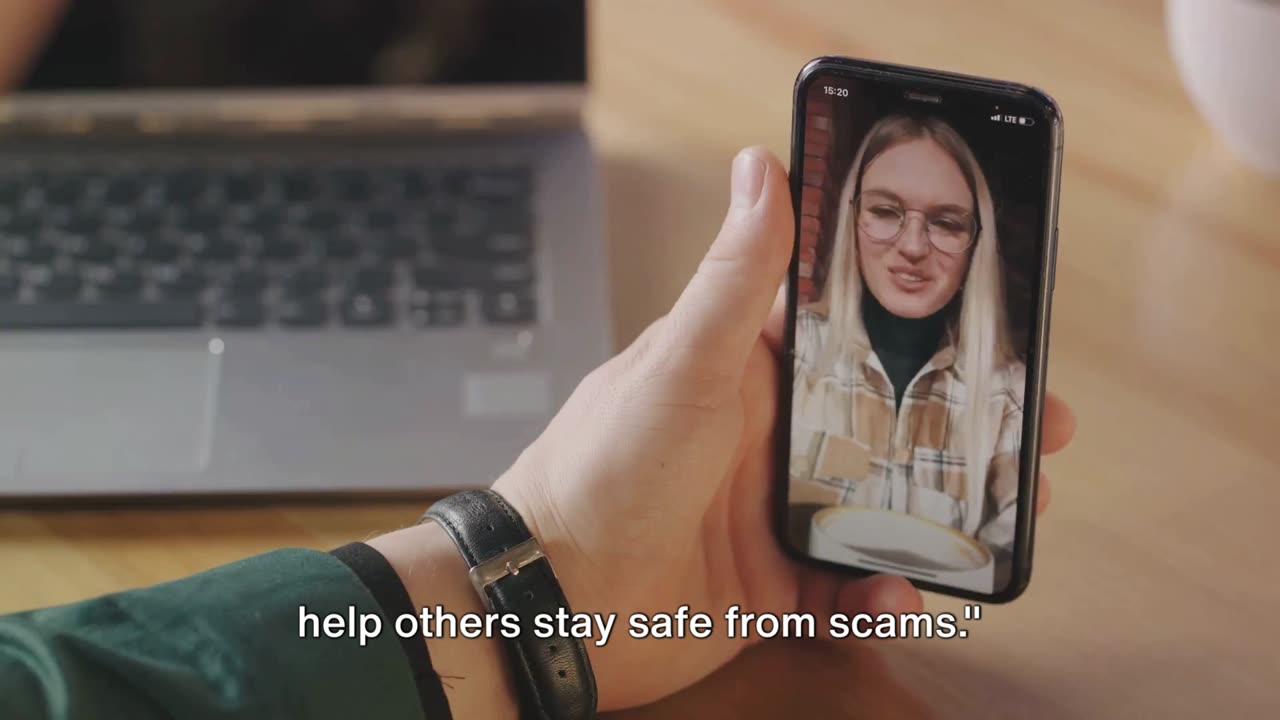Premium Only Content

Top 10 signs you're being SCAMMED
Being able to recognize potential scams is crucial in protecting your finances. Here are some common signs that you may be dealing with a scam:
Too Good to Be True: If an offer promises unusually high returns or benefits with little to no risk, it's likely a scam. Remember the old adage: "If it sounds too good to be true, it probably is."
Pressure Tactics: Scammers often use high-pressure tactics to rush you into making a decision without giving you time to think it over or do proper research. They may claim the offer is available for a limited time only or that you must act immediately to benefit.
Unsolicited Contact: Be cautious if you receive unsolicited emails, phone calls, or messages urging you to invest, buy a product, or provide personal information. Legitimate businesses typically don't reach out to strangers without prior consent.
Request for Personal Information or Money: If someone asks you to provide sensitive personal information such as your Social Security number, bank account details, or passwords, or if they request payment or wire transfers upfront, proceed with caution. Legitimate entities usually won't ask for this information without a valid reason, and certainly not in unsolicited communications.
Lack of Transparency or Information: Legitimate businesses are usually transparent about who they are, what they offer, and how they operate. If you can't find clear information about the company, its products, or its track record, it's a red flag.
Poor Grammar and Spelling: Many scams originate from overseas, and scammers may not have a strong command of the language used in their communications. Typos, grammatical errors, and awkward phrasing can indicate a scam.
No Physical Address or Contact Information: Legitimate businesses typically have a physical address and contact information readily available. If you can't find this information or if it seems fake, it's likely a scam.
Unregistered or Unlicensed: Before investing or making significant financial commitments, verify that the individual or company is registered or licensed with the appropriate regulatory authorities. Scammers often operate without proper authorization.
Negative Online Reviews or Complaints: Before engaging with a company or individual, search online for reviews and complaints. If you find numerous negative reviews or reports of scams, it's best to steer clear.
Instincts and Gut Feelings: Trust your instincts. If something feels off or too risky, it's better to walk away. It's always safer to err on the side of caution.
If you encounter any of these signs or are unsure about a particular offer or situation, it's wise to seek advice from a trusted financial advisor or do further research before proceeding.
-
 10:25
10:25
Melonie Mac
19 hours agoThe Last of Us 3 won't be happening by the look of it
9.07K41 -
 14:50
14:50
Mrgunsngear
18 hours ago $1.90 earnedRuger LC Carbine 10mm Review 🇺🇸
7.15K18 -
 15:17
15:17
Degenerate Jay
21 hours ago $1.93 earnedThis Batman Keeps Coming Back!
7.65K6 -
 37:38
37:38
Kyle Rittenhouse Presents: Tactically Inappropriate
11 hours ago $0.46 earnedThe Dinesh D'souza Interview
4.52K1 -
 12:18
12:18
NinjaGamblers
1 day ago $0.36 earnedHow to Win at Roulette with The Three-Layered Castle Strategy
6.18K2 -
 1:00:47
1:00:47
Trumpet Daily
19 hours ago $3.60 earnedEurope’s Sudden Turn Against America - Trumpet Daily | Mar. 6 2025
6.98K9 -
 14:58
14:58
BEK TV
1 day agoDUNSEITH DECLASSIFIED: UNRAVELING THE EXPLOSIVE TRUTH BEHIND A MINOT MURDER AND A SCANDAL!
12.5K -
 3:28:45
3:28:45
Price of Reason
15 hours agoTrump DELAYS Tariffs With Mexico! Mickey 17 Review! Gavin Newson Hosts Charlie Kirk! GTA6 EXPENSIVE!
45.8K13 -
 2:43:35
2:43:35
TimcastIRL
11 hours agoDemocrats SHUT DOWN Congress Blocking Censure Of Al Green, OBSTRUCT House w/Joe Redden | Timcast IRL
170K89 -
 1:03:27
1:03:27
Glenn Greenwald
15 hours agoUK Pressures Apple to Break Encryption in Major Privacy Clash; How Dems Can Win Back the Working Class: With Former Bernie Sanders Campaign Manager Faiz Shakir | SYSTEM UPDATE #419
98K95